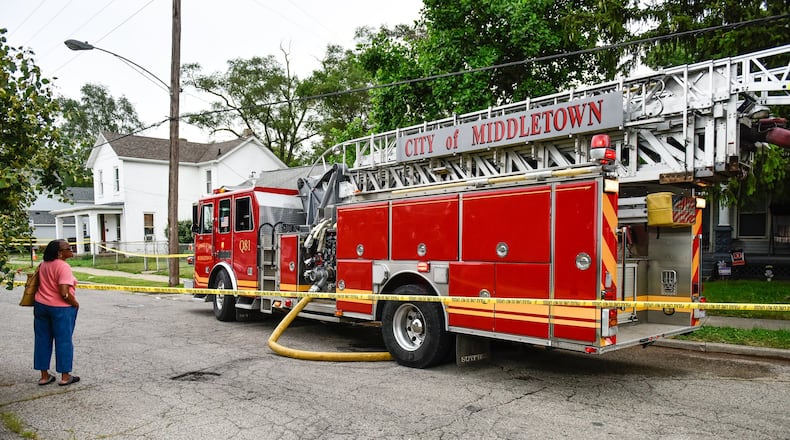“We’ve been reactive to issues and this allows us to be more proactive by planning things years out,” Middletown Assistant Fire Chief Tom Snively said of the 27-page plan released this week.
The fire department serves the city’s population of more than 48,000. It responded to 11,178 calls for service in 2016.
“Our next steps are to form working groups for each goal to determine how we’ll reach that goal,” Snively said. “The plan does a real good job of laying out a road map, something the department has needed.”
The developed goals were:
- Conduct a comprehensive, data-driven analysis to evaluate departmental inventories and develop appropriate replacement plans.
- Conduct a staffing and deployment analysis that examines the number and types of response equipment and staffing requirements that meets the needs of the community
- Explore future funding sources and possible alternative sources of revenue.
- Develop a comprehensive program to enhance employee safety and well-being.
- Evaluate current facilities to improve efficiency, safety and well-being.
- Develop a recruitment strategy that meets the needs of the division as evidenced by an increase in the number of applicants.
- Conduct a fire station location analysis.
- Improve annual employee retention rate.
Snively said most of the goals are short-term with some medium and long-term goals. He said most of them should be completed in a year but it might take three to five years to complete a few of them.
Meetings are being planned for later this month and in November that will begin a department equipment inventory and replacement plan as well as preparing a request for proposals to do an analysis of staffing and station locations. Snively said the work groups would identify the parameters for the analysis to be completed. He estimated the cost of the analysis to be about $20,000.
Snively said the last time the city did a master plan for the fire department was in 2004. He said some of the recommendations were implemented and others were found not be workable.
The Ohio Fire Chiefs Association helped the community group in developing the strategic plan. OFCA provided the expertise in strategic planning and best practices in fire service. The organization also facilitated the meetings with the community groups.
About the Author

